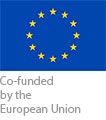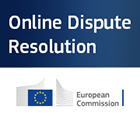Telephone purchases under duress
Did you receive a bill for a product you did not order? Has your bank account been debited one or more times because of a direct debit which you never authorised? Many people suffer a similar fate following a telephone call that is often from a fraudulent company.
Telephone sales that are misleading or completed under duress are prohibited. ECC Belgium explains:
- How do companies using fraudulent practices over the phone operate?
- What are your rights?
- Did you receive an unwanted delivery, bill or payment reminder following a conversation with a telesales person? What to do next?
- Was your bank account debited one or more times without your authorisation? What to do next?
How do you identify a fraudulent telephone sale?
Has a telesales person offered you travel discount, a free sample of a cosmetic or miracle product or a free test sample of a puzzle book? Be on your guard. These apparently attractive offers are often linked to a sale or even an expensive subscription.
How does this fraudulent practice work? The telesales person briefly explains his offer and usually proposes that you test the product or service for free or for a small fee (e.g. to cover the postage). Once you have agreed to the sample offer, and may well have provided your bank details, the salesperson confirms that he will send you confirmation of the offer by e-mail.
In practice, however, the e-mail is rarely sent or is directed to your ‘junk mail’ folder. Result: a few weeks later, when the telephone call has long been forgotten, you receive a steep bill or possibly a payment reminder. Sometimes it might even be sent by a debt collection agency. The amount due is clearly higher than that you agreed over the phone.
Even worse, sometimes the money has been taken from your bank account by direct debit, which you never authorised.
What are your rights?
Were the content and price of the offer clearly explained to you? And did you specifically agree to it? If you did, the telephone sale is valid.
Was the offer based on a free sample, which following a test period automatically transferred into a subscription? In such cases the salesperson must clearly explain to you that the free sample will be followed by chargeable packages, exactly what the charge will be, how often you will receive them and what you should do to stop further deliveries.
The salesperson must reveal his identity and specifically explain your main consumer rights (the fourteen day cooling-off period). He must also confirm the details of your order and other information via a durable medium (e.g. e-mail) following the phone conversation.
Did you not receive correct information on the nature and cost of the agreement during the telephone conversation? Did you not specifically agree to a clear and unmistakable offer? In that case the agreement is null and void and you don’t have to pay anything.
Did you receive a package you never ordered? You don’t have to return it and can keep it without paying for it.
Good to know: in some countries the consumer’s oral agreement does not constitute a legal contract. The seller must confirm his oral offer via a durable medium (e.g. by e-mail or by post). The contract will only be valid when the consumer has approved the offer.
Did you receive a bill or payment reminder? What to do next?
Did you receive an unsolicited package accompanied by a bill or payment reminder? In that case you must respond, irrespective of whether the document was sent by the seller or a debt collection agency.
- Inform the seller by e-mail or by post that you are contesting the transaction.
- Has the bill or payment reminder been sent by a debt collection agency? Don’t let them intimidate you. They cannot force you to pay. Inform them by e-mail or by post that you are contesting the transaction.
- Feel free to notify them that you are sending a copy to ECC Belgium.
- Are you still receiving payment reminders? In that case contact ECC Belgium.
Has your bank account or credit card been debited one or more times without your authorisation? What to do next?
Does your bank statement show one or more unidentified debit transactions? This means that a direct debit was implemented without your approval. No need to panic!
Contact your bank as soon as possible to contest the direct debit. Your bank will block it and refund you for any payments made via this direct debit. You can also ask your bank to impose specific measures to prevent this type of unauthorised payments in future.
Was your credit card debited? Contest the payment via www.mijnkaart.be or www.macarte.be.


